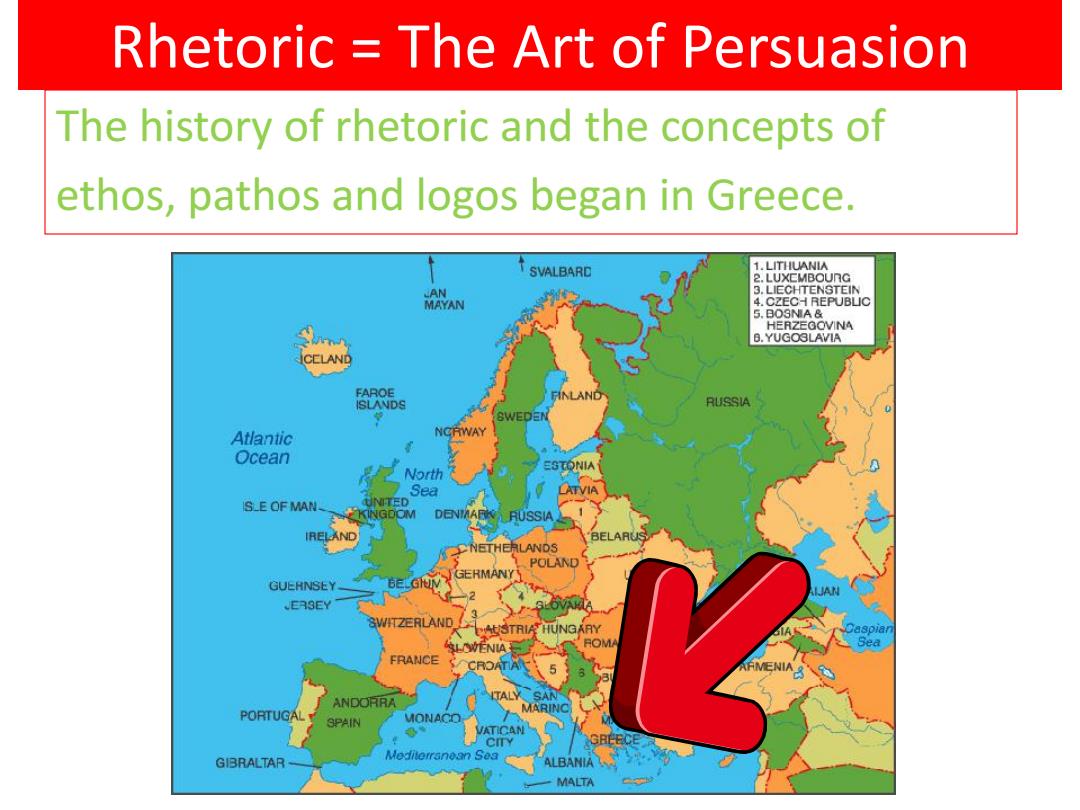
Rhetoric The Art of Persuasion The history of rhetoric and the concepts of ethos,pathos and logos began in Greece. SVALBARD 1.LITHUANIA 2.LUXEMBOUnG N 3.LIECHTENSTEIN 4.CZECH REPUBLIC 5.BOSNA& HERZEGOVINA B.YUGOBLAVIA CELAND RUSSIA Atlantic Ocean North Sea IS_E OF MAN- KINGDOM D日NIMA RAND BELAR POLAND GUEHNSEY JER3EY SWITZERLAND AUSTRIA HUNGARY ea FRANCE ANDORRA MARINC PORTUGAL SPAIN MONACO GIBRALTAR Mediterrsnean Sea ALBANIA MALTA
Rhetoric = The Art of Persuasion The history of rhetoric and the concepts of ethos, pathos and logos began in Greece
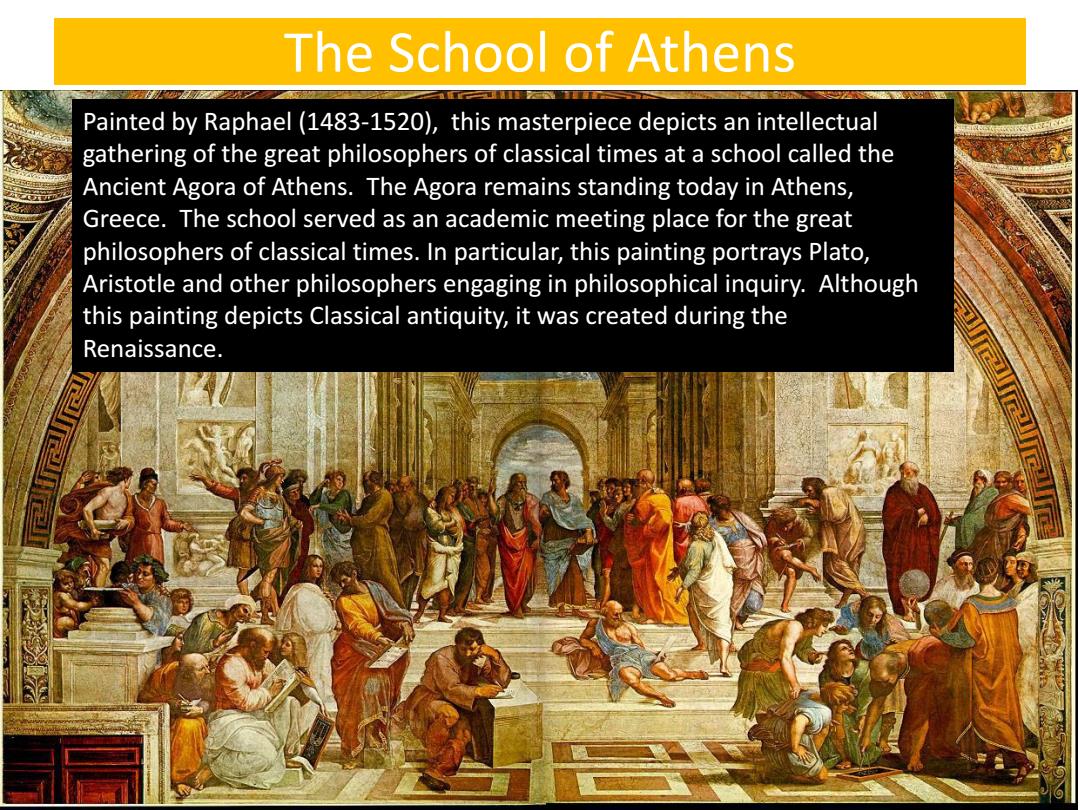
The School of Athens Painted by Raphael(1483-1520),this masterpiece depicts an intellectual gathering of the great philosophers of classical times at a school called the Ancient Agora of Athens.The Agora remains standing today in Athens, Greece.The school served as an academic meeting place for the great philosophers of classical times.In particular,this painting portrays Plato, Aristotle and other philosophers engaging in philosophical inquiry.Although this painting depicts Classical antiquity,it was created during the Renaissance
The School of Athens Painted by Raphael (1483-1520), this masterpiece depicts an intellectual gathering of the great philosophers of classical times at a school called the Ancient Agora of Athens. The Agora remains standing today in Athens, Greece. The school served as an academic meeting place for the great philosophers of classical times. In particular, this painting portrays Plato, Aristotle and other philosophers engaging in philosophical inquiry. Although this painting depicts Classical antiquity, it was created during the Renaissance
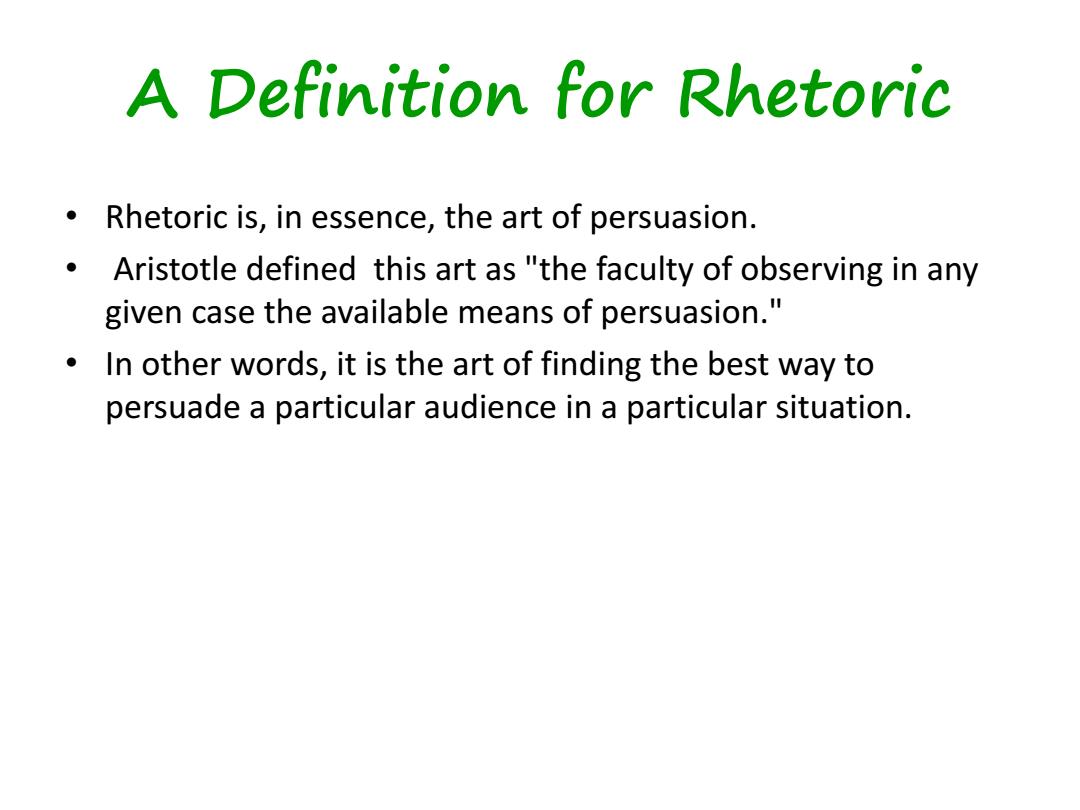
A Definition for Rhetoric Rhetoric is,in essence,the art of persuasion. Aristotle defined this art as "the faculty of observing in any given case the available means of persuasion." In other words,it is the art of finding the best way to persuade a particular audience in a particular situation
A Definition for Rhetoric • Rhetoric is, in essence, the art of persuasion. • Aristotle defined this art as "the faculty of observing in any given case the available means of persuasion." • In other words, it is the art of finding the best way to persuade a particular audience in a particular situation
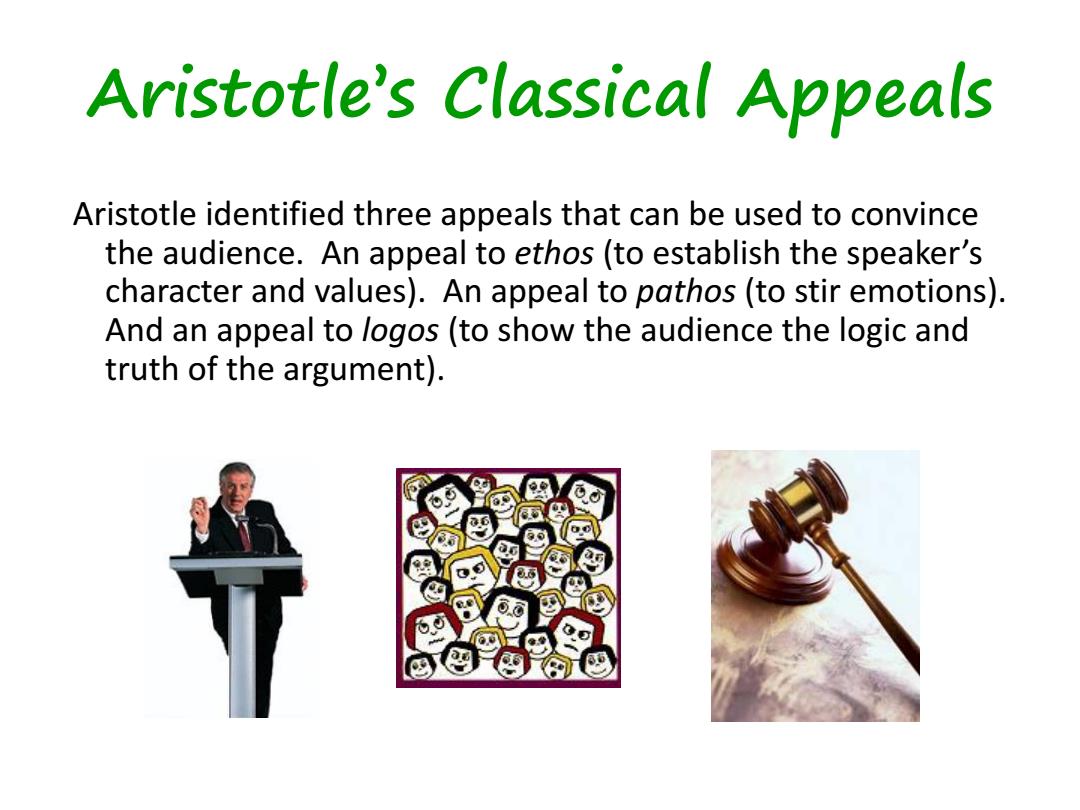
Aristotle's Classical Appeals Aristotle identified three appeals that can be used to convince the audience.An appeal to ethos(to establish the speaker's character and values).An appeal to pathos(to stir emotions). And an appeal to logos(to show the audience the logic and truth of the argument)
Aristotle’s Classical Appeals Aristotle identified three appeals that can be used to convince the audience. An appeal to ethos (to establish the speaker’s character and values). An appeal to pathos (to stir emotions). And an appeal to logos (to show the audience the logic and truth of the argument)
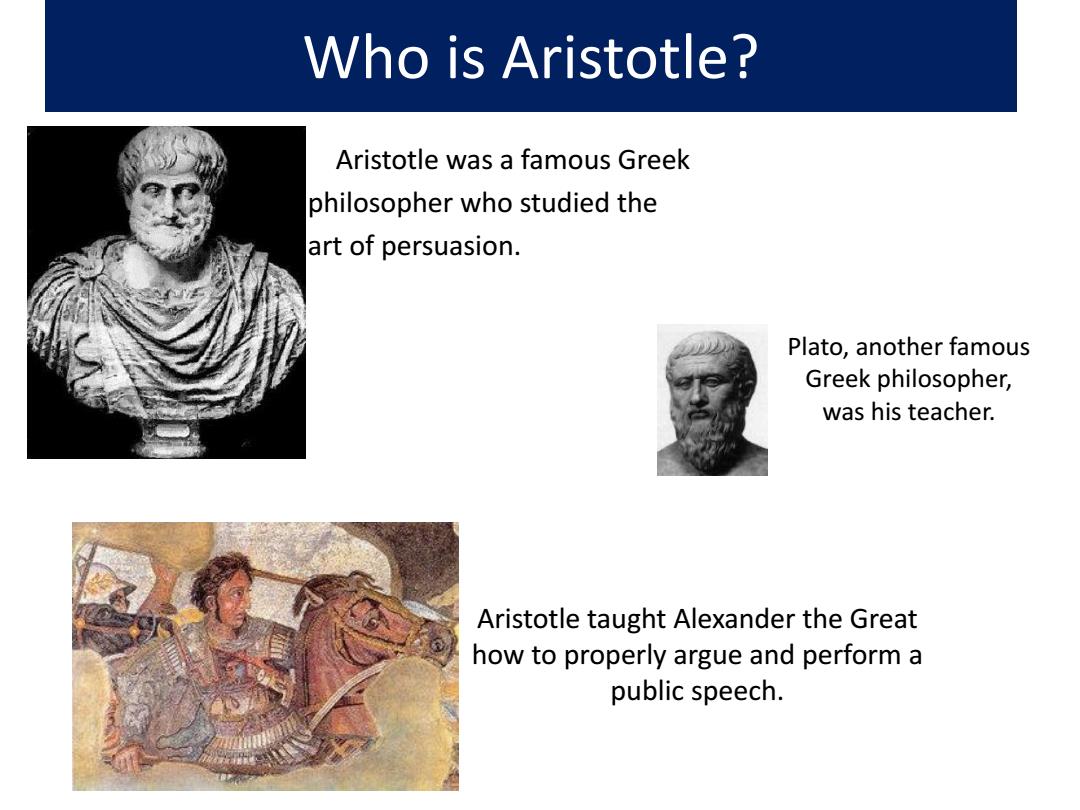
Who is Aristotle? Aristotle was a famous Greek philosopher who studied the art of persuasion. Plato,another famous Greek philosopher, was his teacher. Aristotle taught Alexander the Great how to properly argue and perform a public speech
Who is Aristotle? Aristotle was a famous Greek philosopher who studied the art of persuasion. Aristotle taught Alexander the Great how to properly argue and perform a public speech. Plato, another famous Greek philosopher, was his teacher